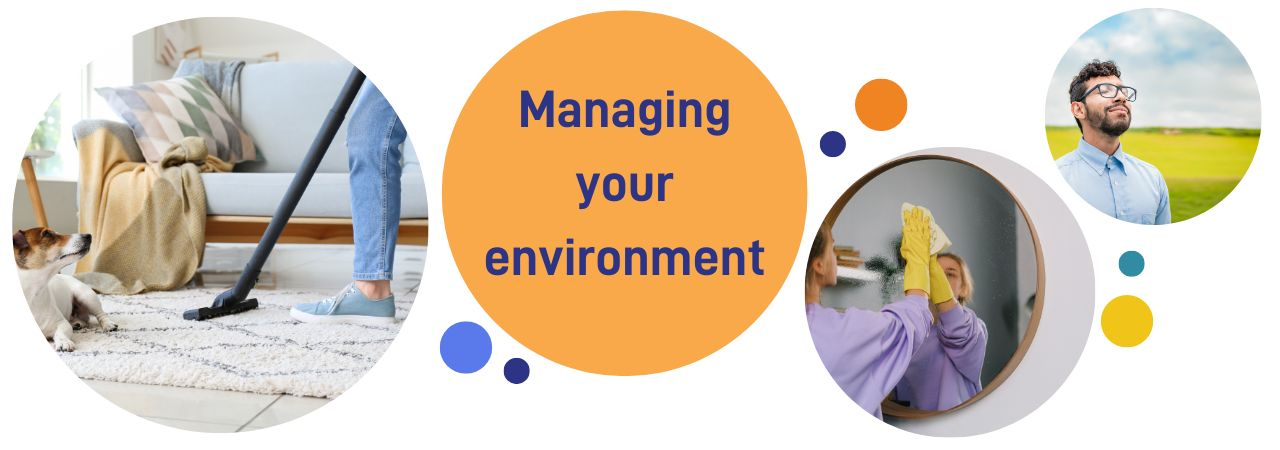
Managing your environment
Living with Mast Cell Activation Syndrome can be challenging, as exposure to certain triggers can lead to uncomfortable and potentially severe symptoms. However, by making some thoughtful adjustments to your home environment, you may be able to significantly reduce the impact of known triggers and create a safer and more comfortable living space. Below, we explore some typical triggers associated with MCAS in the home environment and provide practical advice on how to avoid them. You can also view our Community Tips page, which has been put together with useful tips received from our community.
Understanding triggers:
While triggers can vary from person to person, there are some common triggers that affect many individuals with MCAS. To minimise exposure to potential triggers and create a safe space for yourself or your loved one with MCAS, you could consider the following recommendations. Remember that each person has a unique set of triggers and it is only helpful to avoid triggers which cause symptoms for you.
It can be helpful to check cupboards and forgotten spaces, removing any of known or potential triggers. Hidden triggers might include candles, sprays, and scented items.

Maintain a clean living space:
Regularly vacuum, dust, and clean your home to reduce allergens. House dust is one of the leading ways we are exposed to toxic chemicals.
Use a vacuum cleaner equipped with a HEPA filter to trap smaller particles effectively, not forgetting to pull out furniture and clean along skirting boards and other hidden areas.
Wet mopping and wet dusting with a humid cloth weekly helps to maintain a clean living space.
Encase mattresses and pillows in dust mite-proof covers and wash bedding frequently in hot water.
Hard flooring may be easier to keep ‘trigger-free’ than carpeted areas which trap dust mites, pet hair and other allergens.
Taking your shoes off will ensure there is less dirt, less pesticides & other chemicals entering your home.
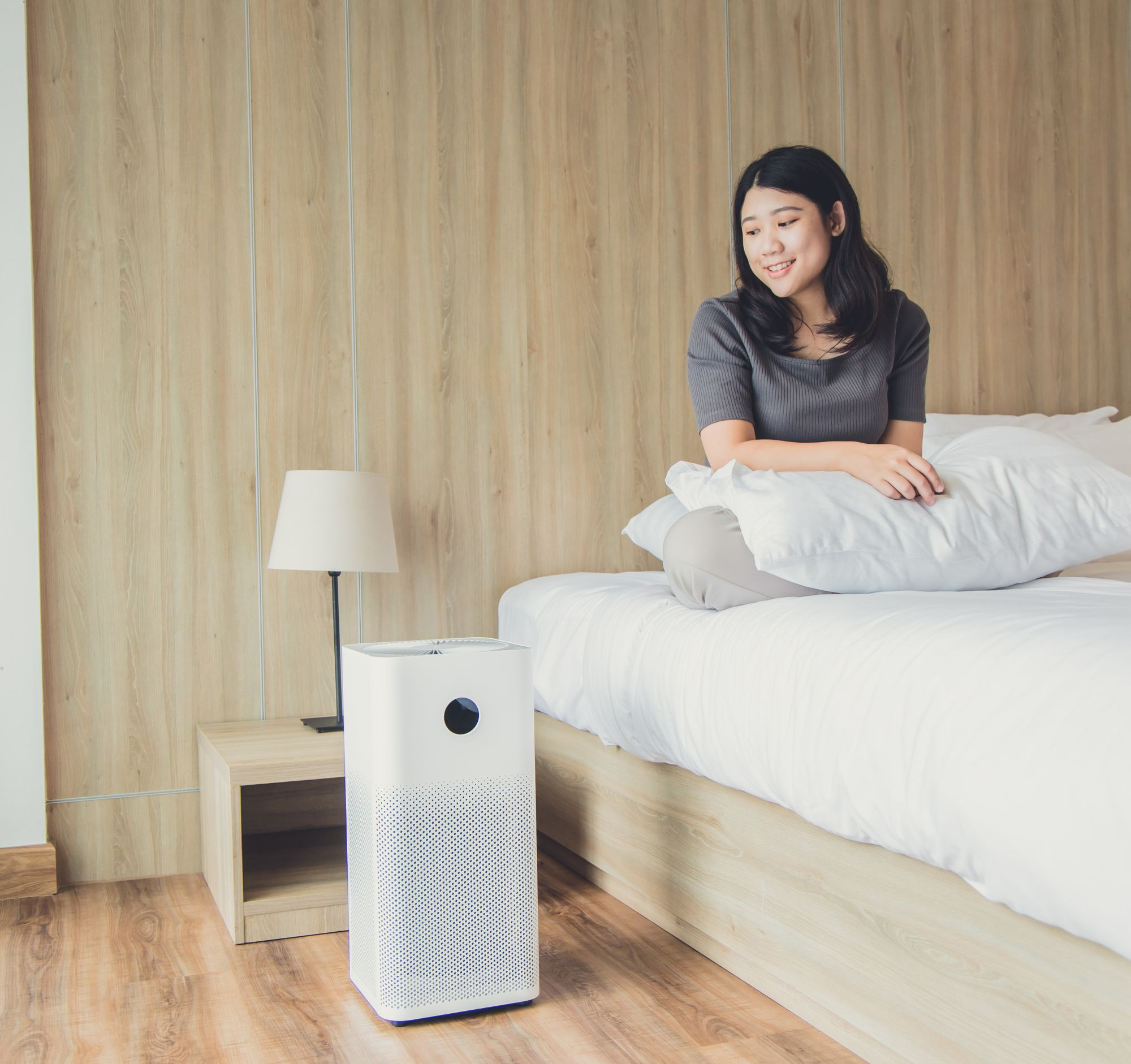
Manage air quality:
Use high-efficiency air filters or purifiers with HEPA filters to remove allergens and airborne irritants, remember to clean the filters regularly.
Ventilate your home properly to minimise the accumulation of stale air. Opening the windows on opposing sides of your house for as little as 5-10 minutes each day can help to circulate the air in your home and reduce the number of poisons inside your home.
Avoid using scented candles, air fresheners, cleaning products and other products that release volatile organic compounds (VOCs).
Avoid using wood fireplaces, since they release unhealthy oxidizing compounds.
Use safe-for-you house plants to scale back levels of air pollutants like benzene and formaldehyde. Good options include the philodendron, spider flower, ivy, gerbera daisy, chrysanthemums, bamboo palm, peace lily, Ficus, mother-in-law’s tongue and vine.
Change or clean filters in extractor fans, hoovers, etc. Depending on usage, these filters should be changed every 1-3 months to keep your air cleaner.
A jar of bicarbonate of soda could absorb unwanted smells.
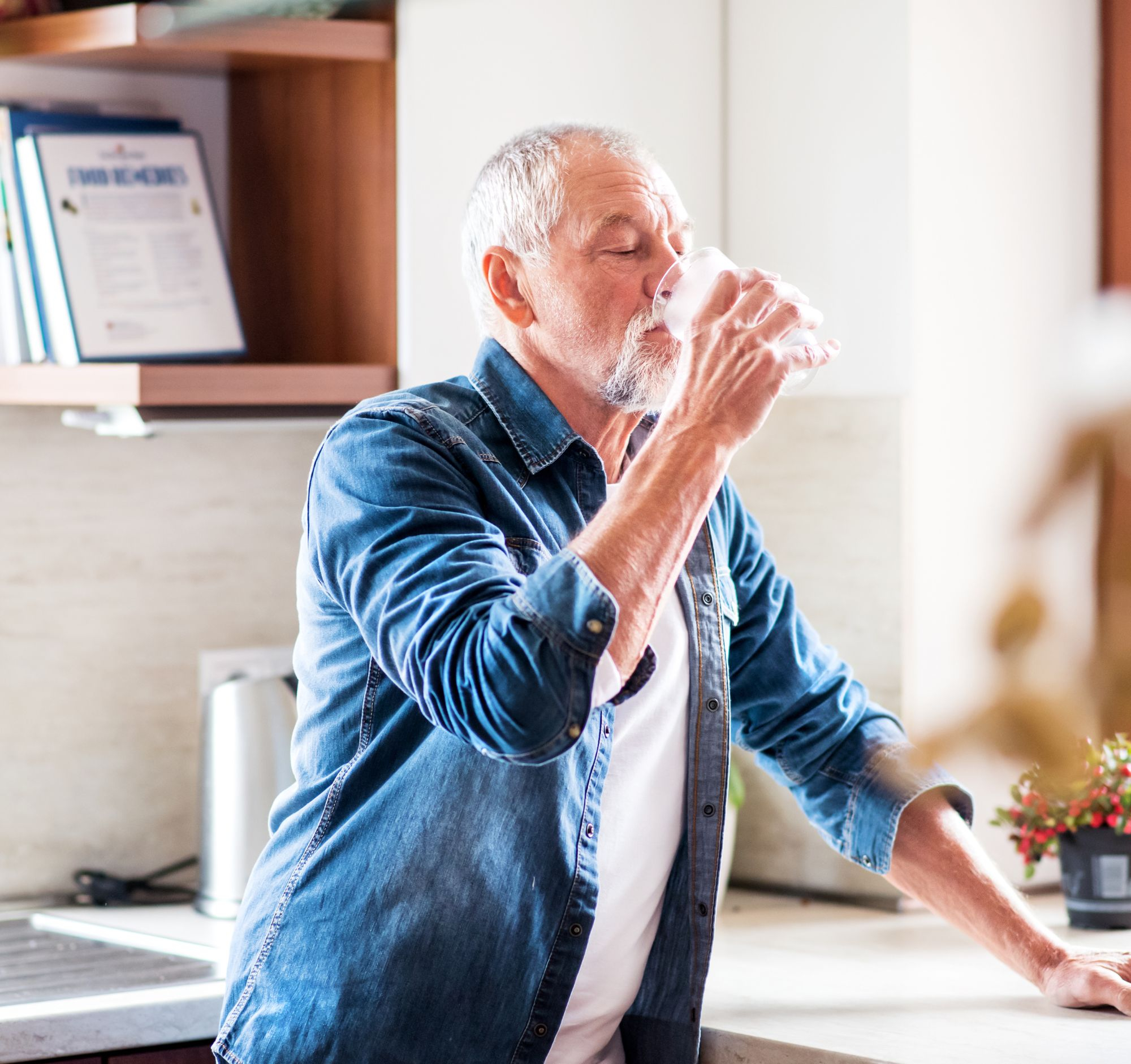
Manage water quality:
While many people in the U.K can safely drink tap water, people who are sensitive to chemicals and toxins such as those living with MCAS could benefit from additional water filtration.
Tap water can contain trace amounts of chlorine, fluoride, pesticides, and other chemicals used in the water treatment processes. For people sensitive to these compounds, even low levels can sometimes trigger adverse reactions, such as skin irritations or gastrointestinal issues. A high-quality water filter can effectively reduce chlorine and fluoride levels, providing water that is gentler on sensitive systems.
Water may contain trace amounts of heavy metals, like lead and copper, particularly if water travels through older pipes. Tap water can also contain microplastics - small plastic particles are being found increasingly in water sources, which has raised health concerns, especially for those worried about long-term exposure.
Filters with activated carbon or reverse osmosis technology can significantly reduce these particles, offering an extra layer of protection.
Trace amounts of pharmaceuticals can occasionally be found in UK tap water, though they are typically at very low levels. These traces mainly come from medications excreted by people or disposed of improperly, which make their way into rivers and water systems. Wastewater treatment plants are designed to remove many contaminants, but they aren’t always fully effective in filtering out all pharmaceuticals due to the complexity and diversity of these compounds.
Common medications detected in trace amounts include painkillers, antibiotics, and hormones. Research has found that these low levels are generally not harmful to human health, as the quantities are minuscule. However, long-term exposure to these substances, even at low levels, is still an area of study, especially for vulnerable populations a high-quality water filter, especially one with activated carbon or reverse osmosis capabilities, can reduce the presence of these compounds.
Our Community Support Coordinator, Deborah, has created a hand out on water purification systems which you can find here.

Minimise chemical exposures:
Fragrances found in perfumes, colognes, body sprays, and scented personal care products can be triggers for people with MCAS.
Opt for fragrance-free and hypoallergenic household products as appropriate, including cleaning agents, detergents, and personal care items.
Fragrances and perfumes:
Safe alternatives: Opt for fragrance-free or hypoallergenic versions of personal care products, including soaps, shampoos, deodorants, and laundry detergents. Look for products that explicitly state they are free of fragrances and synthetic additives.
Explain to house guests that you have fragrance sensitivity and ask them to refrain from wearing perfume/cologne to protect your health
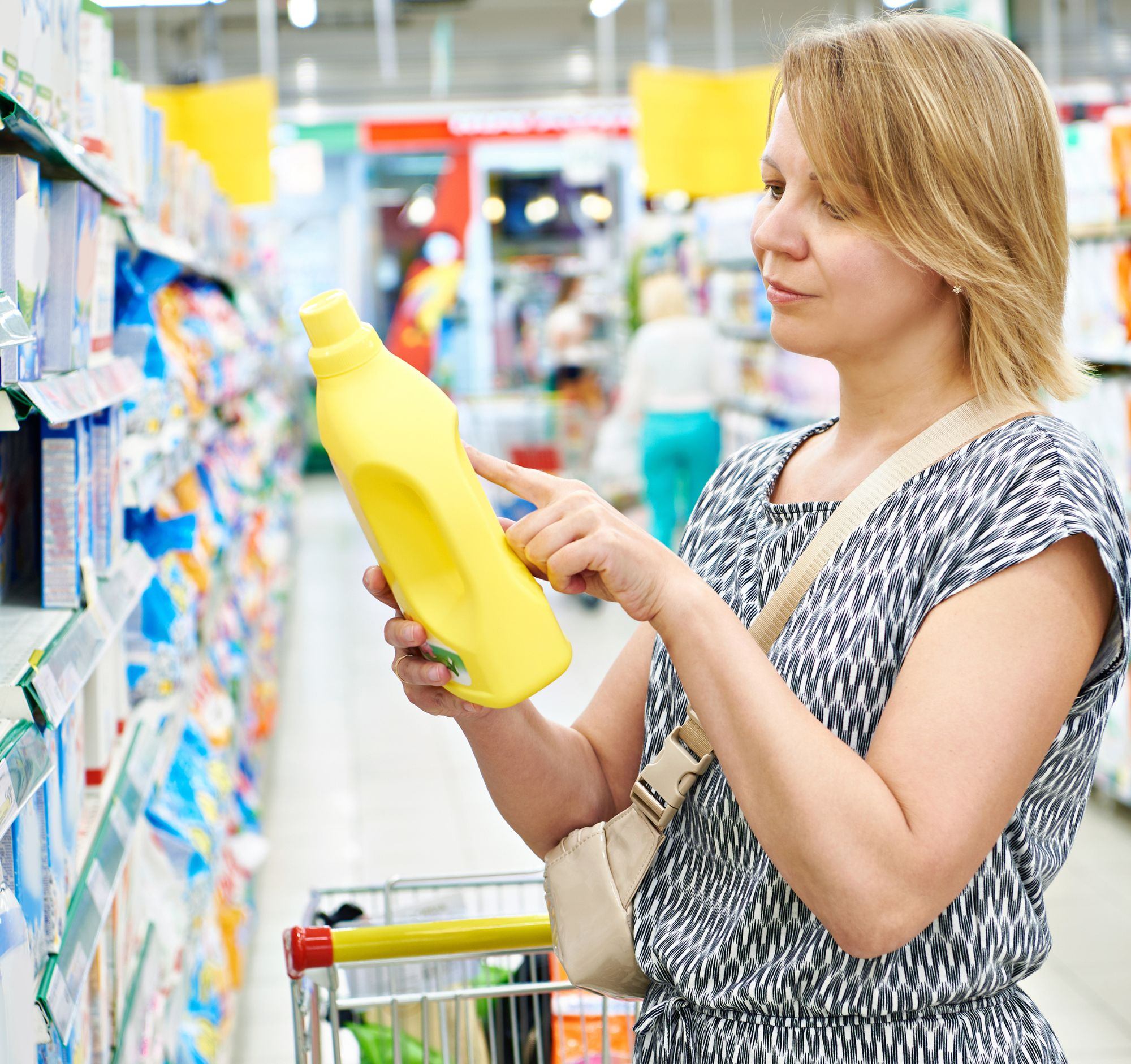
Cleaning products:
Many conventional cleaning products contain harsh chemicals and fragrances that can irritate mast cells. Try to avoid parabens, formaldehyde, synthetic fragrances, phthalates, synthetic colours, triclosan, sodium lauryl sulphate, and propylene glycol.
Safe alternatives: Choose natural and environmentally friendly cleaning products or make your own using non-toxic safe-for-you ingredients such as vinegar, bicarbonate of soda, or lemon juice.
Look for brands that are labelled as fragrance-free, non-toxic, and free of harsh chemicals like chlorine, ammonia, and formaldehyde. Use dishwasher tablets, washing up liquid, and washing liquid for clothes that are as free of chemicals and as natural as possible. There are plenty of natural cleaning tips available online.
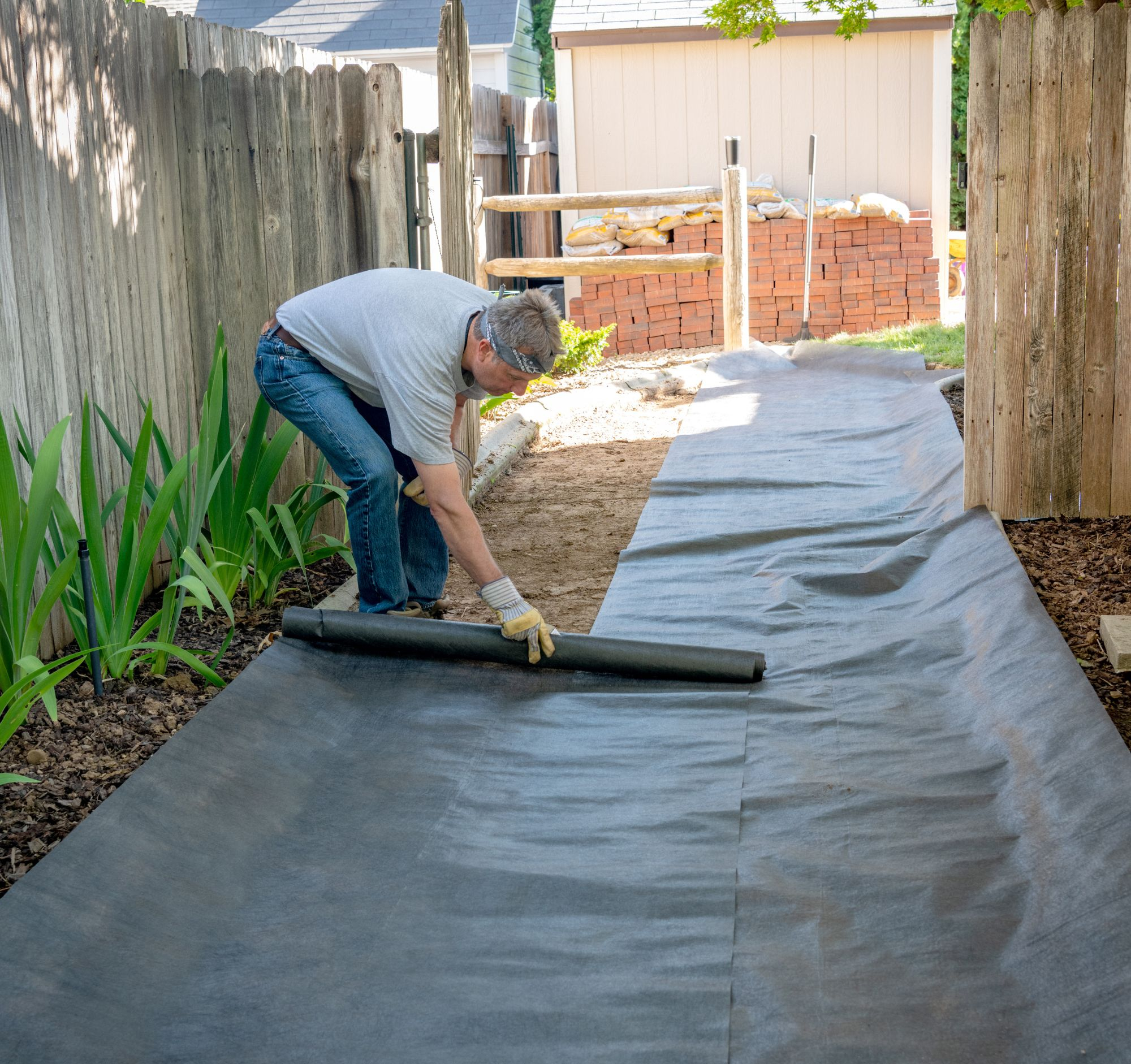
Pesticides and herbicides:
Chemicals commonly found in pesticides and herbicides can trigger reactions for people with MCAS.
Safe alternatives: Explore organic and natural pest control options, such as diatomaceous earth, neem oil, or plant-based insect repellents.
There are many more natural suggestions available online, for example using icing sugar mixed with bicarbonate of soda to control ant infestations or pouring boiling water or white vinegar on patio weeds.
Consider implementing preventative measures where possible, such as sealing cracks, removing standing water, and using physical barriers to minimise the need for chemical interventions.
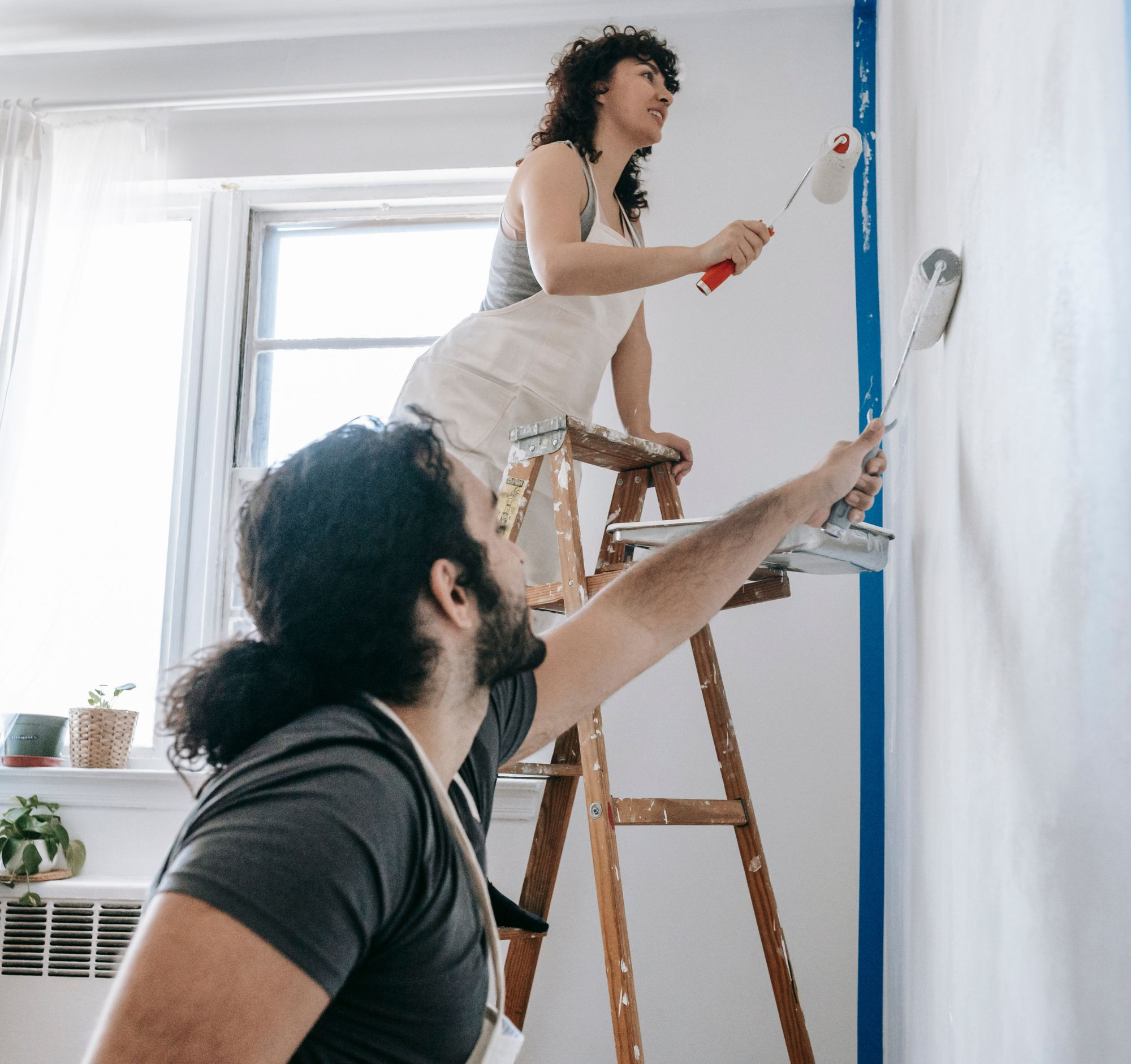
Paints, solvents, and adhesives:
The strong odours and chemical components in paints, solvents, and adhesives can be highly triggering for people with MCAS.
Safe alternatives: Look for low or no VOC paints, water-based adhesives, and natural solvents. Prioritise well-ventilated areas during painting or renovation projects, and use fans or open windows to improve air circulation.
Look for carpets and floor coverings that are certified safe, non-toxic, natural or synthetic fibers like wool, bamboo, or cork, stone, or wood. Invest in furniture made of real wood instead of wallboard and curtains made with natural materials like cotton, wool, or silk.
It can be helpful to test products on small areas prior to covering larger spaces.

Synthetic fabrics and flame retardants:
Some synthetic fabrics and flame-retardant chemicals used in upholstery, mattresses, and clothing can emit VOCs and can trigger symptoms.
Safe alternatives: Choose natural fabrics which are safe for you such as organic cotton, hemp, linen, or wool. Look for flame-retardant-free products or items with certifications like Oeko-Tex Standard 100, which ensures that textiles are free from harmful substances.
Allowing new items to off-gas in an alternative space can also be helpful, as can washing new washable items multiple times before use and allowing them to air outside where possible.
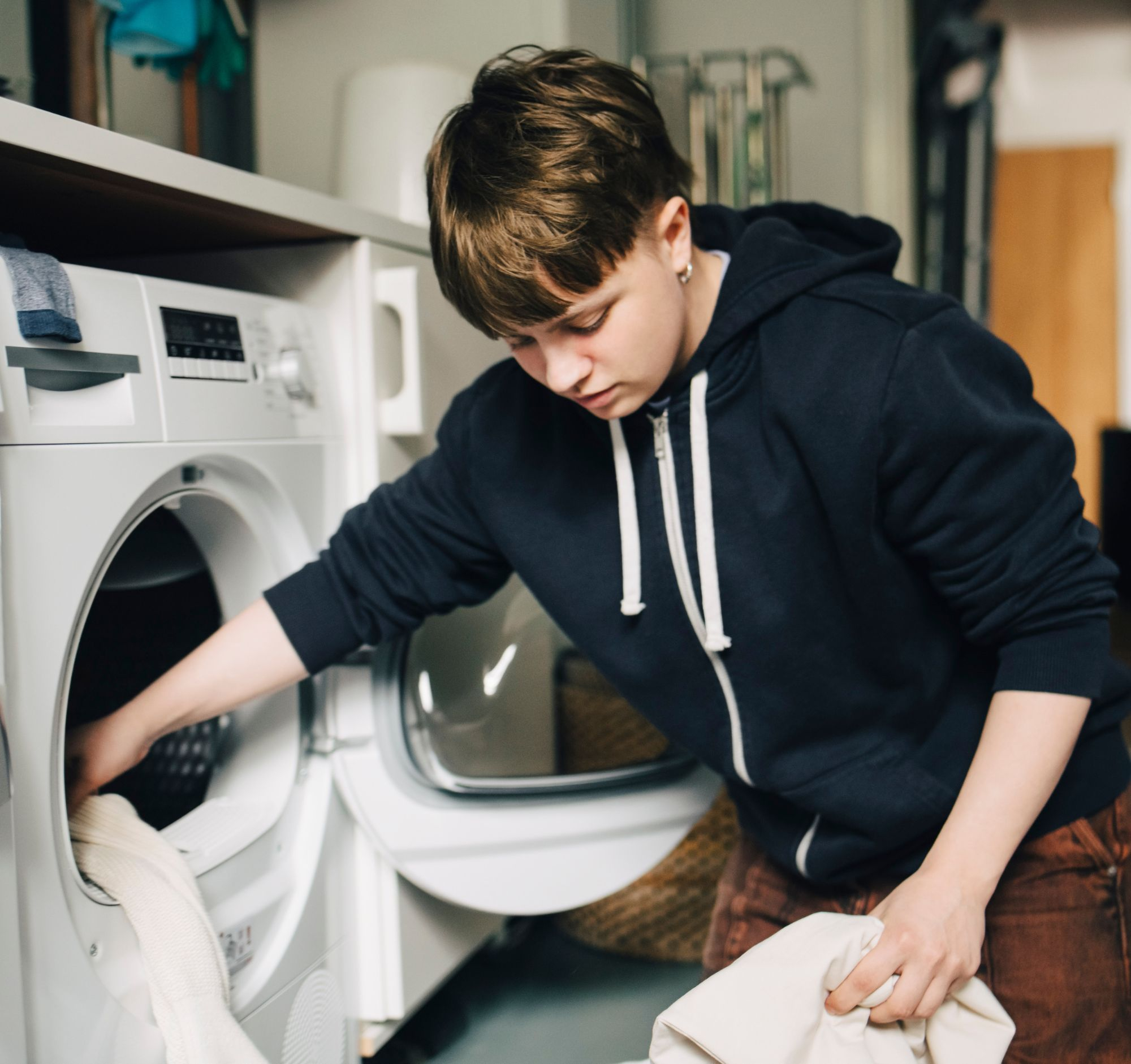
Laundry
Scented laundry care products such as washing liquid and fabric softeners are common triggers for many people with MCAS.
Safe alternatives: Try to find non-perfumed alternatives to laundry detergents, soaps and personal products.
Soap nuts for washing clothes and white vinegar as a fabric softener may be tolerated as alternatives.
There are an increasing number of lower chemical brands with products which may be more suitable.
Washing new items before wearing them can help to remove triggers which may be present from manufacturing and shipping items.
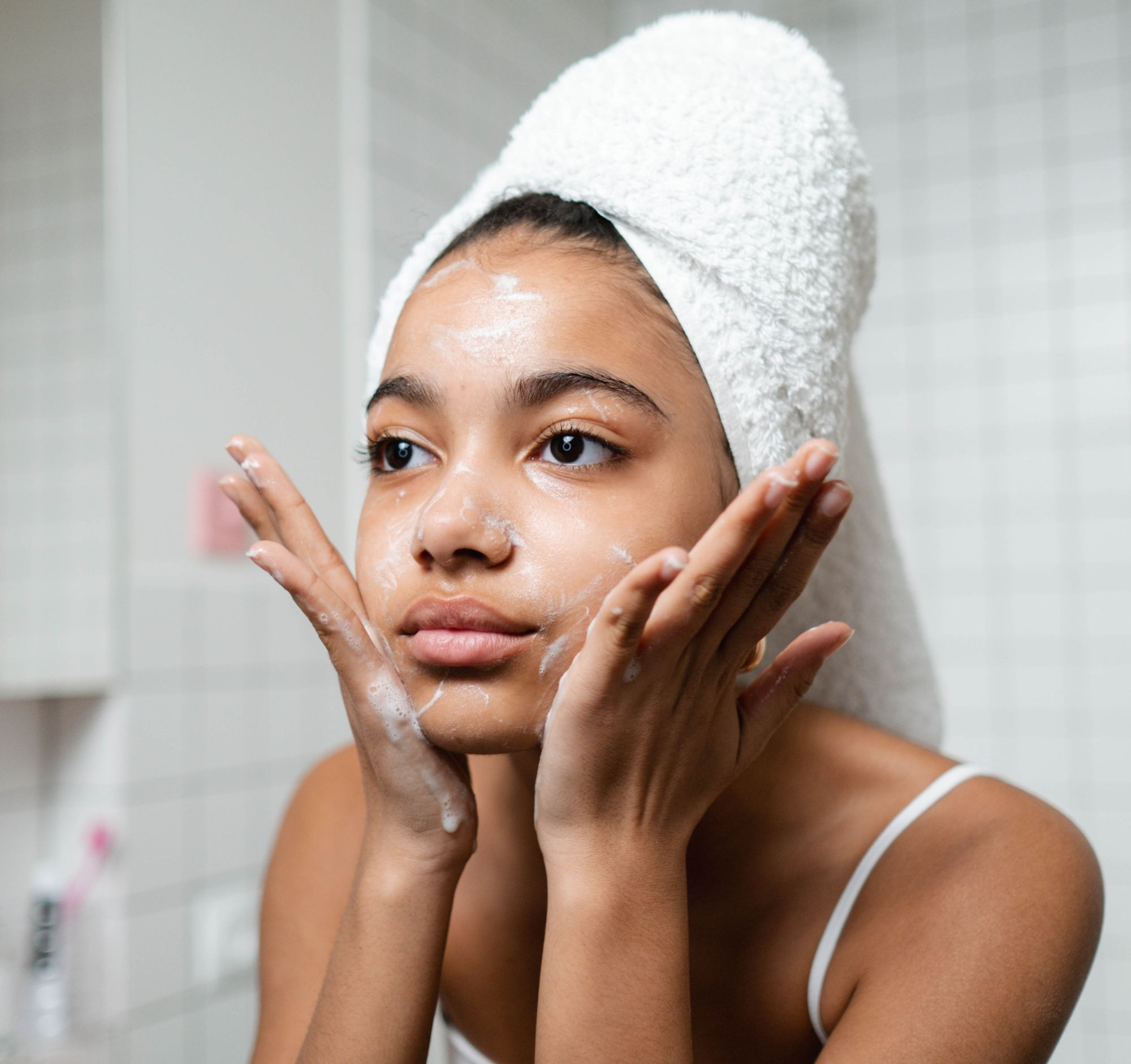
Personal care
Personal care products can include ingredients which cause symptoms for people with MCAS.
Safe alternatives: Source unscented soaps and personal care products, use products with natural ingredients and limit parabens and chemicals in the products you use.
Charcoal toothpaste or teeth cleaning tablets and clay face washes may be tolerated.
Natural moisturisers such as pure aloe vera or shea butter may be more suitable.
Using a trial and error approach of only changing one thing at a time can help to isolate potential triggers.
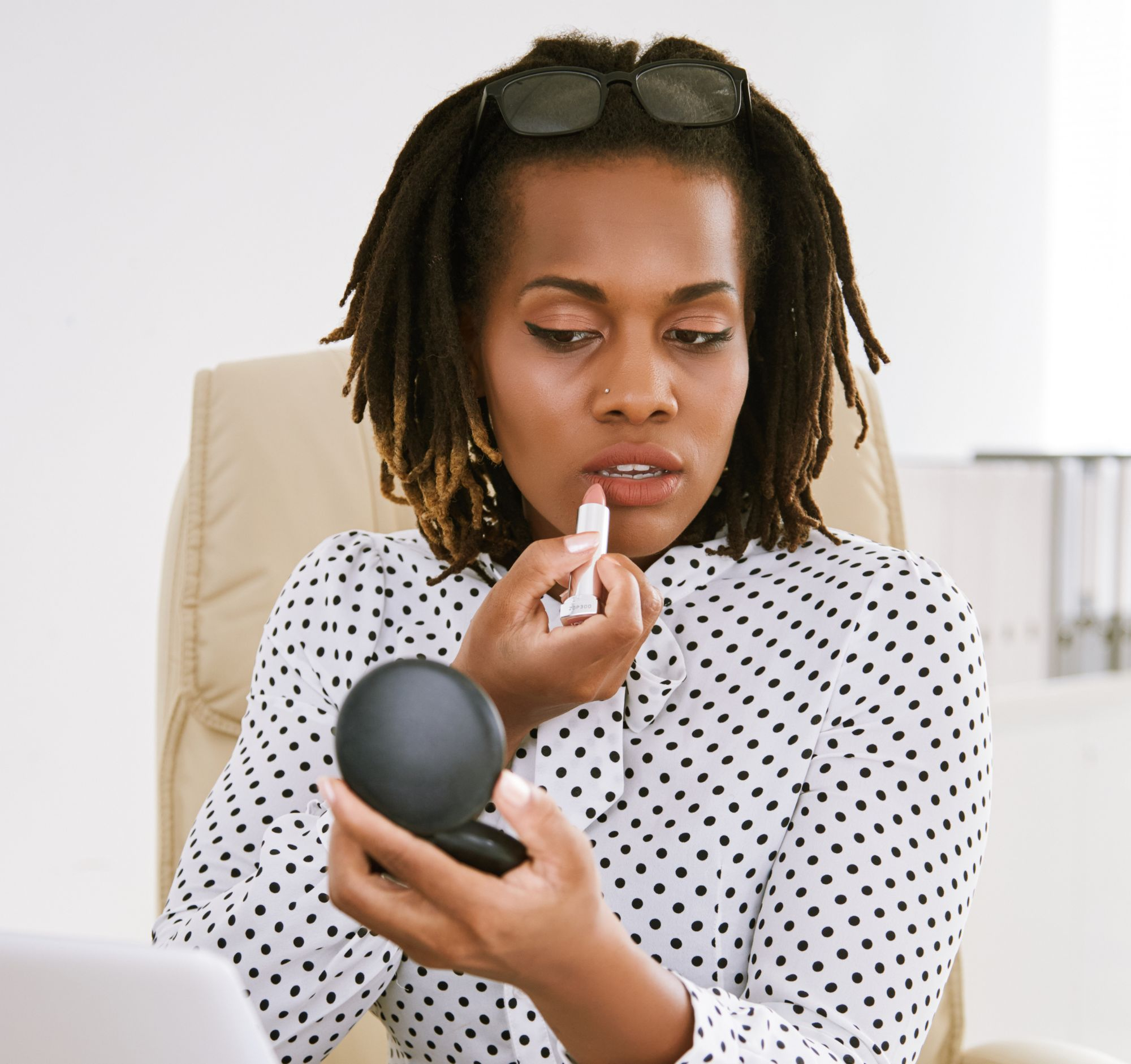
Beauty products:
Make-up products, nail varnishes and other beauty products often contain fragrances and chemicals that may be MCAS triggers.
Safe alternatives: Fragrance-free and hypoallergenic alternatives may be better tolerated along with 'natural' or 'eco' products. Remember just because something is labelled as 'natural', this doesn't mean it doesn't have triggers in.
The fewer ingredients a product contains, the lower the likelihood of encountering triggers. Choosing products with minimal, recognisable ingredients can reduce the potential for adverse reactions.
Pure aloe vera can be used as a make-up remover if this is tolerated. Mineral makeup may be better tolerated, as it often contains fewer additives and chemicals.
Before fully incorporating a new product into your routine, perform a patch test. Apply a small amount of the product to a small area of your skin and monitor for any negative reactions over a day or two.
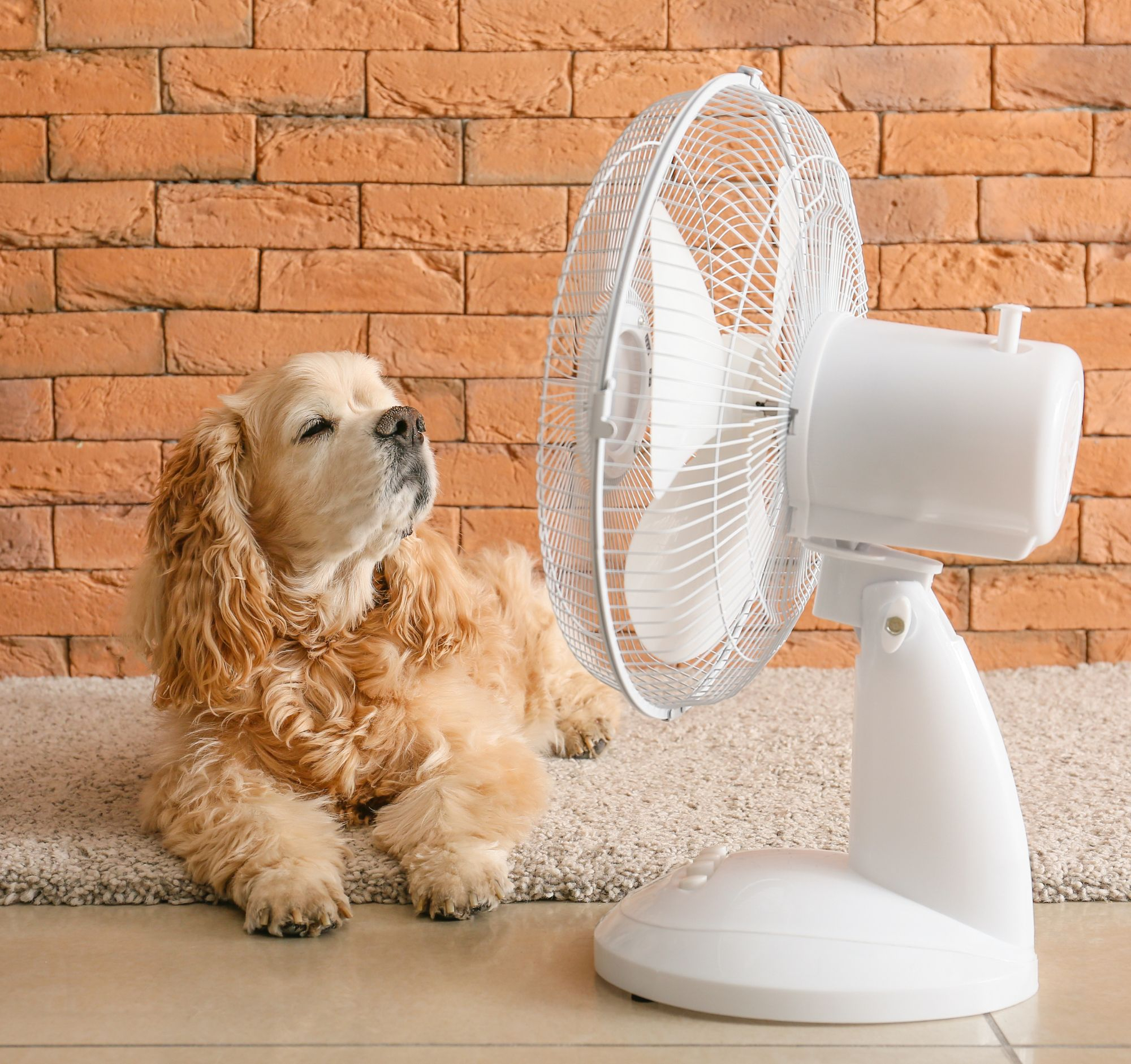
Temperature and humidity control:
Try to maintain a comfortable and consistent indoor temperature. Use fans, dehumidifiers, or air conditioners to regulate humidity levels. Be cautious of sudden temperature changes that could trigger symptoms.
Damp in our homes can contribute to increased levels of mould, bacteria, dust mites and chemical emissions within the air. By venting moisture from bathrooms and tumble dryers outside, using air conditioners and dehumidifiers, opening windows and doors, and using extractor fans while using kitchen appliances like ovens and dishwashers, we can reduce the amount of dampness in our living space.
Dressing in layers can also help to maintain your temperature in a comfortable range.
If you live in privately rented accommodation and are experiencing difficulties with damp and/or mould, you may find it helpful to access Shelter's website for detailed information on your rights and your Landlord's obligations.

Manage food triggers:
Many people with MCAS react to foods. It can be helpful to identify and eliminate specific food triggers from your diet under the guidance of a healthcare professional.
Store and prepare food in clean, well-sealed containers to prevent cross-contamination. Consider the storage containers you are using and opt for safer choices where possible.
Some people find it useful to use a water filter for drinking and cooking.
Consider an elimination diet depending on your own individual triggers as identified by a Health Professional. Read more about managing dietary triggers in our self-management resource here.

Promote a stress-free environment:
Stress can exacerbate MCAS symptoms, so create a calm and relaxing living space where possible.
Being well-organised can help to mitigate stress by being prepared, minimising triggers and promoting a more controlled environment. Simple techniques such as keeping a file of hospital letters, preparing medications into a pill-sorter and using a diary or tracker to record potential triggers and symptoms can help to reduce the additional stress associated with having MCAS.
Be more vigilant during stressful times, such as during exam periods, hormonal cycles, and when facing additional home, school and work-related pressures.
Incorporate stress-reduction techniques such as meditation, yoga, or aromatherapy with safe essential oils.

Household items - in the kitchen:
Avoid nonstick cookware – instead choose stainless steel, cast iron, ceramic baking dishes or glass baking trays and dishes.
Rethink plastic wrap and food storage. Plastic wrap is made with PVC or BPA – both of which can leach chemicals into food and the environment. Instead try unbleached parchment paper, beeswax wraps, & silicone bags and lids. Invest in food storage options such as stainless steel containers with lids, glass storage jars, & bamboo lunch boxes.
Switch to a glass or wood cutting board.
Eliminate plastics and use wood or stainless-steel utensils, as plastic can leach into food.

Household items - in the bathroom:
Check hand soaps, shampoos, conditioner, shower gels etc, choosing products which are as natural as possible. Try to avoid sulphate and parabens, formaldehyde, synthetic fragrances, phthalates, synthetic colours, triclosan, sodium lauryl sulphate, and propylene glycol.
Installing a shower head filter purifies the water reducing contact with iron, copper, chlorine & mercury.
Use cotton towels & face cloths and change your toilet paper for a safer alternative if it causes reactions. Avoid chemical air fresheners and use chemical-free toilet cleaners.
Utilise extractor fans to reduce the moisture in the air and be cautious of extreme water temperatures if temperature change is a trigger for you.
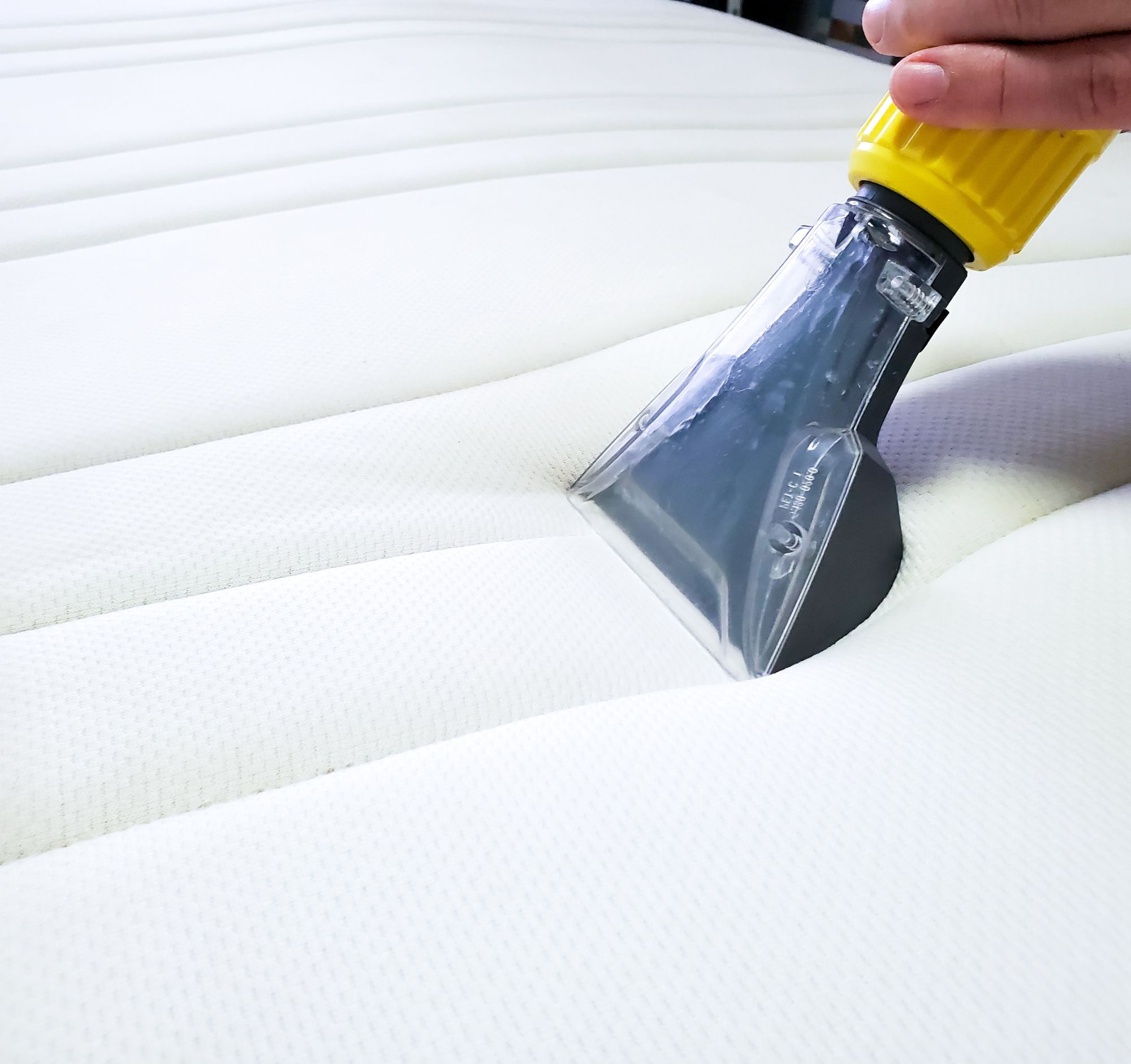
Household items - in the bedroom:
Use natural fabrics such as cotton and wool, and use an enclosed mattress protector to protect from dust mites.
Don’t forget to hoover your mattress and fabric headboards regularly
If you need a waterproof protector, choose one that has the least chemicals in it
When buying a new mattress it will off-gas, this can be a problem for some people, having the windows open, leaving the mattress with no cover on it and using a HEPA filter air purifier can help filter the toxins.
Choose furniture made of natural materials try and try to avoid MDF.

While out and about:
It can be difficult to avoid triggers in spaces that we don’t have control of. Being mindful of the following potential triggers could help to keep you safer while you are not in your home environment.
Fumes at the petrol station and exhaust from cars while driving and air pollutants from industry. Be careful when refuelling your car.
Retail outlets often have air fresheners in stores and toilet areas. Using a good quality mask to reduce the particles you are breathing in can be helpful. Shop online if you are very sensitive to certain stores.
Beware of food smells in restaurants and food courts, avoiding these areas if necessary.

Rescue Bag - Be Prepared, Be Safe
Living with MCAS can mean that unexpected reactions may occur at any time. Some of our community find that putting together a rescue bag ensures they you have everything they need to manage and mitigate symptoms quickly and effectively.
It's ideal for taking to school or work or to carry when on the go. With all necessary treatments and tools in one place, you can be prepared to manage your MCAS on the go.
You may want to consider keeping the following in your rescue bag:
Medications (preventative and rescue), Toilet roll (if different toilet rolls are a trigger for you), a Radar key, hand soap (if different soaps are triggers for you), Toilet seat covers to protect you from contact reactions.
Try to choose a bag that has organised compartments, which allows for fast access to critical items and remember to let those close to you know what you are carrying so they can help you if needed.
Living with Mast Cell Activation Syndrome requires diligence and careful attention to triggers within your home environment. By implementing appropriate measures for you from those outlined above, you may be able to create a safer and more comfortable living space, minimising the risk of symptom flare-ups. However, it is crucial to consult with a healthcare professional who specialises in MCAS for personalised guidance tailored to your specific needs.
Remember, individual sensitivities can vary, so it's important to identify specific triggers through personal observation and, if needed, under the guidance of a healthcare professional. Communicate your sensitivities to friends, family, and visitors to ensure they understand the importance of fragrance-free and chemical-free environments when visiting your home.
The information shared on this page is provided to help you with the self-management of your own MCAS. Mast Cell Action does not recommend or endorse any of the suggestions listed and does not take responsibility for any loss or injury as a result of the use of this information.
Become a friend
Sign up to become a Friend of Mast Cell Action so we can keep you up to date on our progress and on how to get involved in our latest campaigns and initiatives.
Donate
Mast Cell Action relies entirely on the generosity of people like you. Please make a donation now and together we can make a difference to those affected by MCAS.







